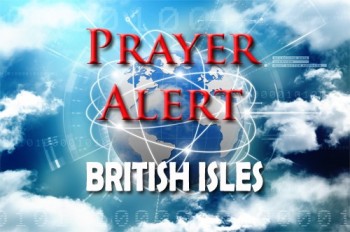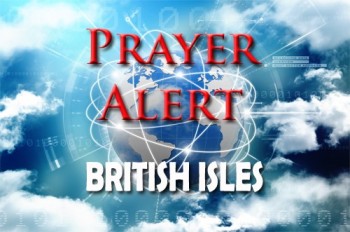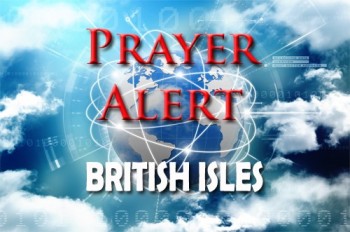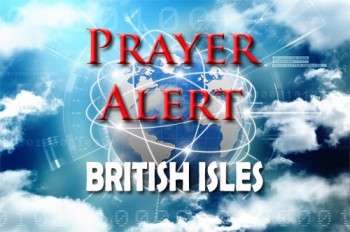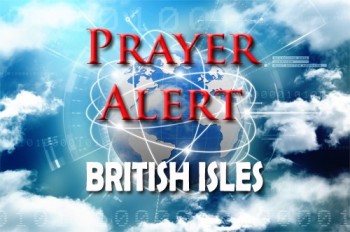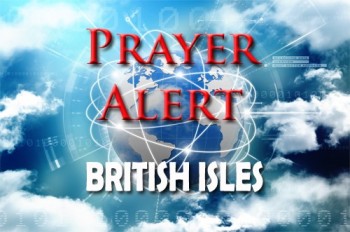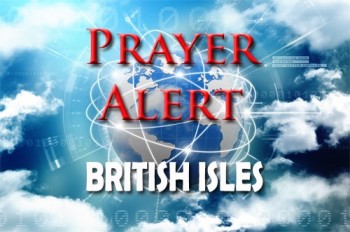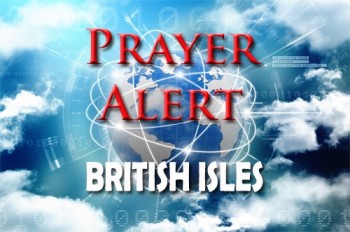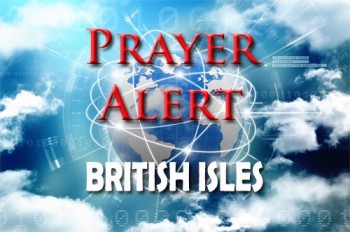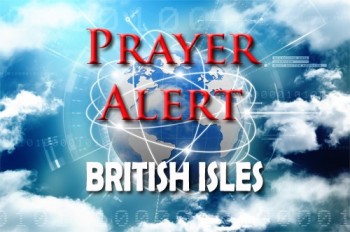Displaying items by tag: United Kingdom
One million more Covid internet gamblers
Online betting rose significantly during the pandemic, the Gambling Commission has confirmed. Figures from the industry watchdog show a 12% rise in the number of adults gambling on the web between 2019 and 2020. Half of those did so using a mobile device, such as a smartphone. Matt Zarb-Cousin of Clean Up Gambling said, ‘Online gambling exploded in lockdown, with firms posting record profits. At least 60% come from those experiencing gambling problems, and online slots provide most of the revenue.’ He added, ‘Consumer protections, such as limits to stakes on slots, as on fixed-odds betting terminals, are badly needed in the gambling review.’ Researchers discovered that 21% of the 10,000 gambling premises in Britain are in the most deprived areas of the country, with only 2% in the least deprived areas.
Refugees in UK need so much
A Brighton doctor helping recently-arrived Afghan refugees in the UK said it was ‘very emotional’ witnessing children beginning to play and smile again. ‘Many arrived dehydrated, malnourished and exhausted after days waiting outside the airport in Kabul,’ said 27-year-old Dr Luke Tester. ‘I can't imagine the suffering they must have gone through.’ He praised the resilience of the refugees, with many arriving unwell and without any possessions. ‘People are exhausted and ill, having gone through the unimaginable, but are still comforting each other. Children who are realising they're safe are beginning to play and smile again. There's been such amazing support for these people from the public; I just hope it continues.’ he said. The British Red Cross said that over £1m had been raised so far to help provide the refugees with essentials such as food, warm clothing, blankets and wash stuff.
School uniforms unaffordable
The average cost of uniform for a primary school child is £315, £337 for a secondary pupil, according to the Children's Society. Sadly, a law to make schools place affordability at the centre of their uniform policy will not be in place in time for the start of this school year, meaning that parents will not benefit from the changes until September 2022. The rules will limit the number of logos on uniforms, allowing parents to buy more items from supermarkets and shops other than a school's main supplier. Meanwhile clothes banks like Cradley Heath Community Link are offering school uniforms and PE kits which have been donated. They are providing uniforms for nine schools in the area at no cost, and are inundated with requests. One visitor, Darren Wright, said that if he had to buy it he’s looking at £300 for one child, impossible for people on Universal Credit. See
BBC’s admission of bias
Last week, Ofcom publicly withdrew from Stonewall’s Diversity Champions programme, citing as the reason a need to avoid conflict or a risk of perceived bias. They are the latest in a growing list of government departments and public bodies to acknowledge that the advice given by Stonewall is highly partisan, often factually inaccurate, and sometimes misleading. None of this, however, appears to have impacted on the BBC. In a statement issued on 26 August, the corporation defiantly repeated its commitment to workplace inclusion, saying it would remain associated with Stonewall’s LGBTQ+ Diversity Champions’ programme. A sizeable number of BBC staff are deeply unhappy with this. Senior presenters have complained that continuing support for the controversial programme indicates clear bias and partiality, with one commenting, ‘if we’re all being lectured about impartiality, and quite rightly so, why are we signed up to a scheme that is obviously partial?’
NHS needs extra £10bn next year
Health bosses say that patients will be put at risk unless the NHS receives an extra £10bn next year to recover from the pandemic. A five-year settlement will see the funding increase by £33bn by 2023-24, but Covid has added to costs in a way that could not have been envisaged when Theresa May's government agreed the settlement in 2019. NHS leaders say the pandemic has led to pressures never seen in the history of the health service. Hospital layouts have had to be overhauled, services moved off site into new buildings, extra infection control procedures have been brought in, and the scale of sickness being seen means extra staff are needed to care for patients. At the same time, there is a growing backlog of traditional care such as hip and knee operations. Instead of budget growth by £4bn under the existing settlement, NHS leaders need almost £15bn.
HGV driver shortages
Many businesses are complaining about the UK's shortage of lorry drivers causing serious supply chain problems. The coronavirus pandemic, Brexit, and tax changes have contributed to a lack of qualified drivers. The shortfall is 100,000 workers. Tom Reddy has driven lorries for over 15 years. His pay recently increased from £17.50 an hour to £24.50 - a 40% jump. ‘I've never known anything like it,’ he said. ‘But they could pay me £80,000 a year and it wouldn't be enough. I want to leave.’ While Brexit is a factor, it is the shifts, regularly sleeping in a lay-by and the rude way in which members of the public talk to him that make him no longer want to continue in the job. He also blames gender imbalance in the workplace, racism, and xenophobia. While he welcomes moves by the industry to give attention to drivers’ mental health, this isn't enough for him.
The Good Childhood Report
The Children’s Society said modern life continues to erode young people’s happiness and children deserve drastic changes. 306,000 10- to 15-year-olds are unhappy with their lives: in 2010 it was 173,000. ¼ million children did not cope with changes during the pandemic. 1 in 7 girls and 1 in 8 boys are unhappy with their looks, and 1 in 9 children are unhappy with school. Society is tragically failing our children. At school they are pressurised to wear make-up and have the right figure. Children unhappy with their lives at 14 are most likely to have mental health issues by age 17, including self-harm and suicide attempts. Pray for those suffering with mental health issues to come up out of the pit into the light of life.
Afghanistan: warnings and explosions at airport
Shortly after UK armed forces minister James Heappey had warned of an imminent terror attack, and had called on those queuing outside Kabul airport to move to safety, two explosions rocked the area on 26 August, leaving a number of casualties and throwing evacuation efforts into more turmoil, days before President Joe Biden's deadline for the USA to leave the country. At least 13 people including children were killed and many others were injured in what Taliban sources described as a suicide attack. Defence secretary Ben Wallace said a ‘better option’ for fleeing Afghans would be to travel across the land border. Christian charity CARE said that the current situation in Afghanistan is a recipe for a human trafficking disaster. Afghan women, fearful of life under new political leadership and aware of attacks on their rights, will want to escape oppression and may, in desperation, turn to illegal means of leaving the country. Many who are promised a better life will end up falling into modern slavery, whether that means commercial sexual exploitation, forced labour, or domestic servitude. See
100+ churches help Afghan refugees
Over 100 churches have joined forces to help Afghan refugees settle in the UK. Christian charities Welcome Churches and the Hospitality Pledge are encouraging churches to join them in supporting refugees - particularly in areas where the resettlements will be. Dr Krish Kandiah, founder of adoption charity Home for Good and leader of the Hospitality Pledge project, said, ‘It has been so amazing to see churches step forward and get involved. We have identified some of the regions where resettlement hotels will be and are working with the Home Office to provide practical support.’ People arrive with very little, and lightweight clothing - they are cold, even in summer. Churches are sourcing clothing and prams, but the biggest need is accommodation. Groups of 100 are put in hotels, not the best place for families. Dr Kandiah hopes to utilise Christian retreats and conference centres for families, and has launched an emergency Afghan fund.
Extinction Rebellion protests
Activists have begun two weeks of London protests 'targeting the root cause of the climate crisis'. On 24 August protesters lined London streets with placards, waved banners and erected obstacles to disrupt and block roads around Westminster. They blocked off roads, glued themselves to a giant table, and formed a human chain around the area cordoned off by police. Dozens were carried to police vans by officers who used loudspeakers to warn the crowd to leave or risk arrest. At least 10,000 people congregated near the rallies; by 26 August 196 people had been arrested. The group's co-founder gave a speech expressing solidarity with nations disproportionately affected by climate change. Pray for all the police forces to respond appropriately and proportionately to protest activity in the next fortnight, and for a workable policing plan.
